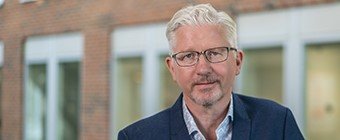Urban development can create jobs in agriculture and forestry
Using the land around cities in a thoughtful manner is a vital component of sustainable urban development. Anna Ternell and Bodil Elmqvist, senior sustainability strategists at COWI, will attend two international climate summits to share insights about the subject.
30.10.2017
Sustainable urban development is not just about city centres. It is also about generating opportunities for beneficial interactions between the cities and the peri-urban areas surrounding them.
This will be one of the key messages from COWI experts at the Climate Innovation Summit held in Milan on 30 and 31 October, and at COP23 in Bonn on 7 November. COP23 is part of the UN Climate Panel (UNFCCC). Politicians, decision makers, and private and public operators from all over the world will also be attending.
In connection with the Bonn conference, Anna Ternell and Bodil Elmqvist will be holding a round table discussion on the theme of peri-urban forestry and agricultural development across the Nordic region. The discussion will take place under the direction of the Nordic Council of Ministers.
At the conference in Milan, Anna Ternell will be part of an expert panel and she will present projects involving sustainable peri-urban land use, projects she is running in collaboration with the City of Gothenburg, Malmö City, Copenhagen University, CNR Bologna, Chalmers Technical University and Västra Götaland Region.
“It is lucrative to participate in these contexts and I look forward to rewarding talks and to connecting with potential future partners from other cities around Europe,” says Anna Ternell.
Urban-rural interaction can create jobs
An example of beneficial interactions between the cities and the peri-urban areas are job creation within agriculture and forestry. A project for sustainable peri-urban land use is currently in progress in four municipalities including Gothenburg.
It is Anna Ternell who is heading up the project in close cooperation with the region, Chalmers and Business Region Gothenburg.
“Sustainable land use can be made up of many components, but in the Gothenburg project we have opted to focus on peri-urban forestry and agricultural development linked to green business models and social sustainability, and this is the starting point for my participation at the climate conferences,” she says.
The City of Gothenburg has a unique opportunity to plan for sustainable land use in and around the city centre, as they own 70 per cent of the land and the project has robust political support.
At the turn of the year, three out of five steps in the ongoing project around Gothenburg had been delivered in the form of a business model for peri-urban development as well as a white paper and policy proposal for how cooperation between the municipality and private operators can be successful.
“It is for the municipalities to establish partnerships with operators, who want to rent land for cultivation or for farming and forestry, and that this is done in an advantageous way for everyone involved. That way it will also benefit the municipality’s residents in the form of job opportunities,” says Anna Ternell.
About Climate KIC
- The project for sustainable peri-urban land in four municipalities including Gothenburg is funded by Climate KIC, Europe’s largest umbrella organisation for private and public collaborations concerning innovation and climate.
- Climate KIC was established in 2010 by the European Institute of Innovation and Technology (EIT) and consists of a large number of companies (such as COWI), universities and public bodies such as municipalities.
- Climate KIC is an EU body aimed at generating sustainable growth by addressing issues such as climate change and climate adaptations.
Get in contact

Søren Kragh Pedersen
Head of Group PA & PR
Communication, Denmark
Tel:
+45 2025 7018
skpn@cowi.com